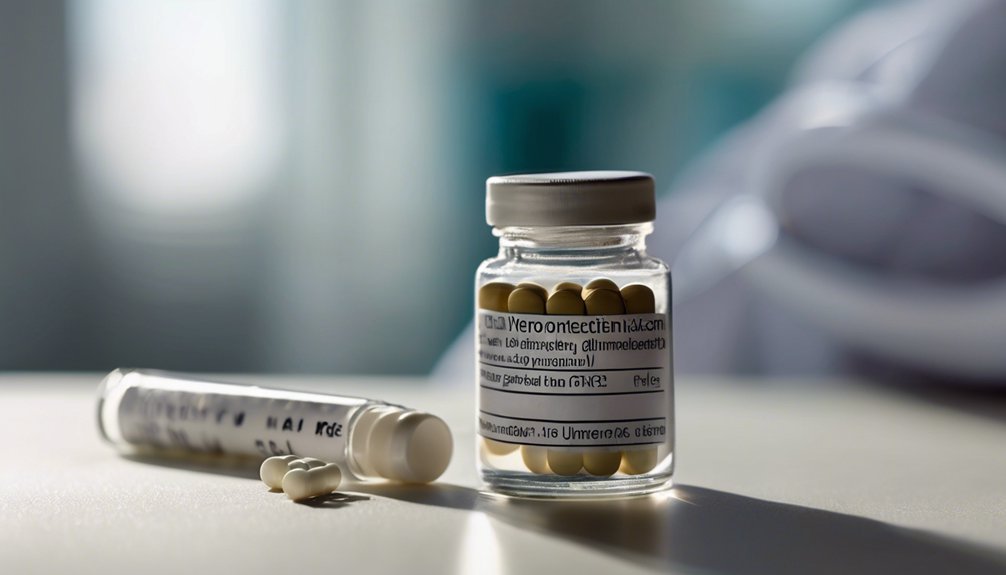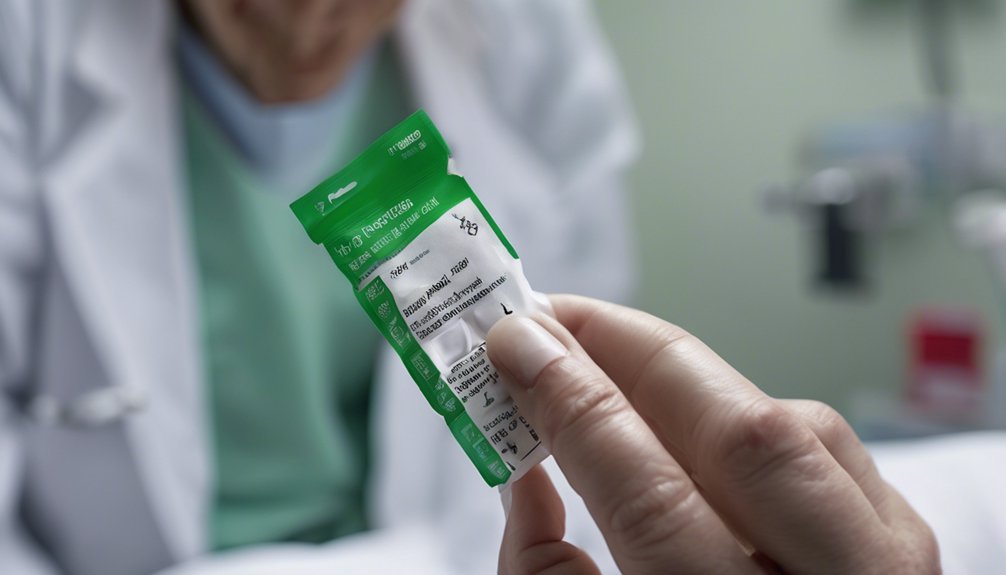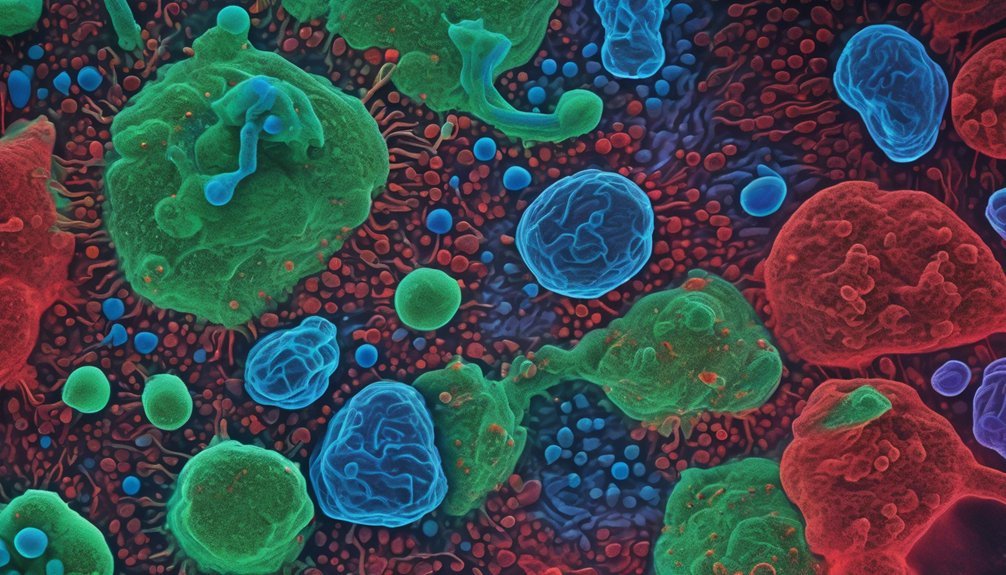Imagine navigating a maze blindfolded; that’s what self-medicating with ivermectin for cancer can feel like. While some may hope to find a way out, the risks include nausea, misdiagnosis, and severe allergic reactions. These dangers can obscure your cancer’s progression and complicate your treatment. Understanding these potential pitfalls is crucial, especially when considering other treatment options and interactions. What happens when you stray from professional guidance?
Key Takeaways
- Self-medicating with ivermectin may lead to adverse effects like nausea and severe allergic reactions, complicating existing health issues.
- Misdiagnosis can occur if symptoms related to cancer are masked by ivermectin, delaying necessary treatment.
- Drug interactions with medications like anticoagulants can increase risks and diminish the effectiveness of treatments.
- Without professional guidance, patients may use improper dosages, jeopardizing their health and treatment outcomes.
- Consulting healthcare professionals ensures safe and effective treatment strategies are explored, prioritizing patient well-being.
Understanding Ivermectin and Its Intended Uses

While many people might associate ivermectin with animal use, it’s essential to understand its intended applications in humans.
Ivermectin’s mechanism involves binding to specific channels in parasites, leading to their paralysis and death. In human medicine, it’s primarily used to treat parasitic infections.
Ivermectin works by targeting specific channels in parasites, causing their paralysis and death, primarily treating parasitic infections in humans.
Emerging research is exploring ivermectin’s potential role in cancer treatment, particularly its ability to enhance the effectiveness of certain therapies. However, this application is still under investigation, and rigorous clinical trials are necessary to establish safety and efficacy.
If you’re considering ivermectin for any condition, including cancer, consult a healthcare professional first. Responsible use is crucial to ensure patient safety and avoid unintended complications.
Always prioritize evidence-based practices when serving others.
Potential Risks of Self-Medicating With Ivermectin
Self-medicating with ivermectin poses significant risks that individuals often underestimate. Many believe alternative therapies like ivermectin can effectively treat serious conditions, leading to treatment misconceptions. Without proper guidance, you may face potential side effects, improper dosages, or missed critical diagnoses.
| Risk | Description |
|---|---|
| Adverse Effects | Nausea, diarrhea, or severe allergic reactions. |
| Misdiagnosis | Symptoms may mask underlying conditions. |
| Ineffective Treatment | Cancer may progress without appropriate care. |
| Drug Interactions | Unintended complications from other medications. |
It’s essential to consult healthcare professionals before considering any treatment. Prioritizing safety can prevent harm and ensure you provide the best support to those you care for.
Drug Interactions and Their Consequences
When considering ivermectin, it’s crucial to be aware of potential drug interactions that can lead to serious complications.
Ivermectin’s effect on drug metabolism may alter the effectiveness of other medications you’re taking, which can jeopardize your overall treatment plan. For instance, if you’re on anticoagulants or certain anticonvulsants, combining these with ivermectin could increase the risk of adverse effects or reduce medication efficacy.
This makes medication adherence even more essential. You must communicate openly with healthcare providers about all medications and supplements you’re using.
The Importance of Professional Medical Guidance

Seeking professional medical guidance is essential for anyone considering ivermectin, as healthcare providers are equipped to assess your individual health needs and medication history.
Self-medicating can lead to unforeseen complications, including harmful drug interactions or ineffective treatment regimens. Medical supervision ensures that you receive appropriate monitoring and adjustments to any medication you may be prescribed.
Furthermore, healthcare professionals can help you explore safe treatment alternatives tailored to your specific condition. By consulting with a qualified provider, you not only enhance your safety but also empower yourself with evidence-based information.
Exploring Safe and Effective Cancer Treatment Options
While exploring cancer treatment options, it’s crucial to prioritize safety and efficacy. You should consider evidence-based approaches and consult healthcare professionals for guidance. Clinical trials can offer access to innovative therapies, while alternative therapies may complement traditional treatments. Always discuss these options with your oncologist to ensure they align with your treatment goals.
| Treatment Type | Description | Considerations |
|---|---|---|
| Chemotherapy | Uses drugs to kill cancer cells | Can have side effects; monitor closely |
| Radiotherapy | Uses high-energy rays to target tumors | Requires precise planning and follow-up |
| Immunotherapy | Boosts the body’s immune response | Works differently for each patient |
| Targeted Therapy | Targets specific cancer cell functions | Potential for fewer side effects |
| Alternative Therapies | Includes holistic methods | Evidence may be limited; use cautiously |
Frequently Asked Questions
Can I Take Ivermectin With Other Cancer Medications?
You should consult your healthcare provider before taking ivermectin with other cancer medications. Drug interactions may affect treatment efficacy, and only a professional can guide you safely through potential risks and benefits related to your specific situation.
What Should I Do if I Experience Side Effects?
If you experience side effects, prioritize side effect management by contacting your healthcare provider immediately. They’ll offer patient support to address your concerns and adjust your treatment plan as necessary for your safety and well-being.
How Can I Find a Qualified Oncologist?
Finding a qualified oncologist can feel daunting, but start by researching oncologist qualifications. Seek specialists with board certifications and positive reviews. Referrals from trusted healthcare providers can also guide you toward the right expert for your needs.
Are There Legal Consequences for Self-Medicating With Ivermectin?
Yes, there can be legal ramifications for self-medicating with ivermectin. Besides potential health risks, using unapproved treatments may lead to regulatory penalties or liability issues, underscoring the importance of seeking professional medical guidance instead.
What Alternative Therapies Exist for Cancer Treatment?
In your quest for alternative therapies, consider exploring natural remedies and holistic approaches. While some options show promise, it’s crucial to consult with healthcare professionals to ensure safety and effectiveness in your treatment journey.
Conclusion
In the realm of cancer treatment, it’s crucial to remember that “an ounce of prevention is worth a pound of cure.” Self-medicating with ivermectin might seem tempting, but the risks far outweigh any perceived benefits. Without professional guidance, you’re not just putting your health at stake; you might also hinder effective treatment. Always consult a healthcare professional to ensure you’re on the path to safe and effective cancer care. Your health deserves nothing less.





